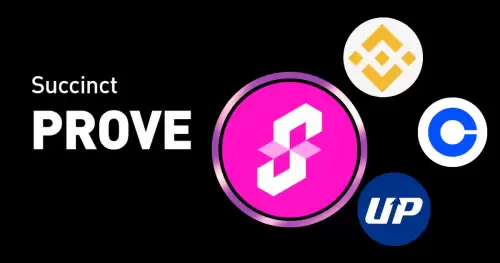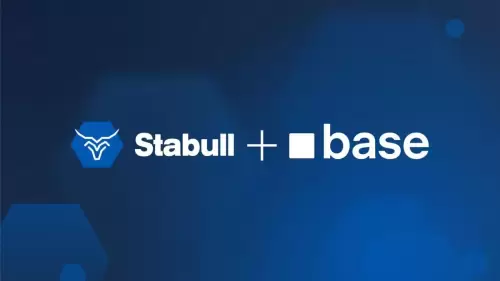 |
|
 |
|
 |
|
 |
|
 |
|
 |
|
 |
|
 |
|
 |
|
 |
|
 |
|
 |
|
 |
|
 |
|
 |
|
Nachrichtenartikel zu Kryptowährungen
Critical Security Flaw in Solana Labs' Token-2022 and ZK ElGamal Proof Programs
May 05, 2025 at 07:16 pm

A critical security flaw affecting the Token-2022 and ZK ElGamal Proof programs of Solana was identified on April 16, 2025, by security researchers.
The vulnerability, which theoretically allowed for unlimited minting of confidential Token-22 tokens, an extension based on zero-knowledge disclosure proof (zk-proofs), has been patched, according to a post-mortem report by Solana Foundation.
The issue stemmed from a hashing error in certain mathematical components during the Fiat-Shamir transformation, weakening the cryptographic verification of proofs and potentially opening the door for malicious actors to forge proofs and mint tokens at will.
However, no exploitation was detected before the bug was fixed, and development teams responded quickly, deploying a patch within 48 hours through a coordinated validator update.
Despite this prompt response, the handling of this incident has drawn harsh criticisms within the crypto community, with some highlighting the lack of transparency from the Solana Foundation in coordinating with validators.
“Why does one entity have all validators’ contact details? What discussions take place in these private channels?” questioned a Curve Finance contributor, fearing potential censorship or an orchestrated rollback of the network.
Solana Labs co-founder, Anatoly Yakovenko, tried to downplay the situation by comparing this emergency to the coordination capability of key Ethereum players in case of critical bugs. But this analogy was strongly contested by a prominent Ethereum community member, Ryan Berckmans.
According to Berckmans, the fundamental difference lies in the diversity of clients. While Geth represents a maximum of 41% of the Ethereum market, Solana currently has only one fully operational client: Agave.
People are missing the important points in this Solana emergency fork situation
1) Eth has client diversity and a protocol spec steered by a meaningful research community.
The most popular eth client, geth, has at most 41% market share.
Sol has one prod client (just one; don't integrate yet!) and no real protocol spec research community.
2) This isn't an anomaly. It's a critical bug in a core crypto primitive used across many chains.
According to Berckmans, the integrality of Agave makes any bug a direct vulnerability of the Solana protocol, rendering the separation between application and protocol nearly meaningless.
“On Solana, a bug in the sole available client is, de facto, a protocol bug. Modifying the client is equivalent to modifying the protocol. There is no functional separation,” he lamented.
However, Solana Foundation is banking on the arrival of the alternative client Firedancer in 2025, aimed at enhancing network resilience and robustness. But according to Berckmans, Solana would need at least three distinct clients to claim true protocol-level decentralization.
The Solana security flaw highlights the unique challenges of centralized-governance blockchains, a major concern for French and European stakeholders – regulators, investors, or developers.
As Europe refines the MiCA regulatory framework, the robustness of the underlying infrastructure of issued tokens becomes critically important. This incident could thus serve as a lesson for future certifications or criteria for integrating digital asset projects.
While Solana demonstrated exemplary responsiveness, the method employed raises legitimate concerns about the network’s technical governance. Client diversity, transparency in incident management, and the ability to weather crises without compromising neutrality are now crucial analytical criteria.
If you can call up the validator nodes to coordinate a critical zero day bug fix, you can call them up to do whatever you want. This is NOT the decentralisation we should be striving for.
And CT is celebrating this as "security is important" #Solana 🙄
The Solana security flaw is a wake-up call: the pursuit of performance and innovation cannot come at the expense of fundamental decentralization principles. An important reminder for the entire crypto ecosystem, at a time when issues of trust and security are more crucial than ever.
Haftungsausschluss:info@kdj.com
Die bereitgestellten Informationen stellen keine Handelsberatung dar. kdj.com übernimmt keine Verantwortung für Investitionen, die auf der Grundlage der in diesem Artikel bereitgestellten Informationen getätigt werden. Kryptowährungen sind sehr volatil und es wird dringend empfohlen, nach gründlicher Recherche mit Vorsicht zu investieren!
Wenn Sie glauben, dass der auf dieser Website verwendete Inhalt Ihr Urheberrecht verletzt, kontaktieren Sie uns bitte umgehend (info@kdj.com) und wir werden ihn umgehend löschen.
-

-

-

- Brasilien, Bitcoin, Hördatum: Ist Brasilien Bitcoin kurz davor, Bitcoin zu nutzen?
- Aug 06, 2025 at 08:00 pm
- Die Abgeordnete in Brasilien wird am 20. August 2025 eine öffentliche Anhörung abhalten, um die Aufnahme von Bitcoin in seine nationalen Reserven zu besprechen. Könnte dies ein Game-Changer sein?
-

-

-

-

-

-






























































